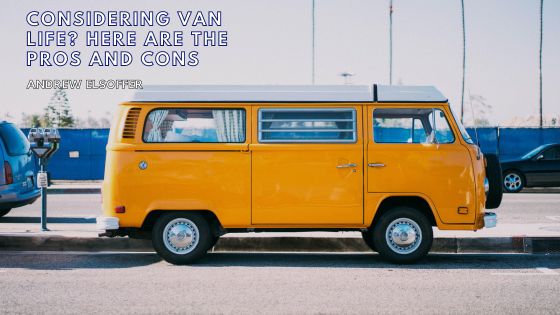Van life, the increasingly popular lifestyle choice of living out of a converted van, captures the imagination with its promise of freedom and adventure. This way of life, often romanticized through social media, starkly contrasts traditional living arrangements. But what does embracing van life indeed entail? As with any significant lifestyle change, carefully weighing the pros and cons is essential. The concept of van life is not new but has gained significant traction. Van life entails turning a van into a mobile home equipped with a kitchenette, bed, and sometimes even a toilet. It’s a lifestyle prioritizes mobility, minimalism, and a close connection with the outdoors.
Historically, van living was often associated with counter-culture movements and a desire to break free from societal norms. Today, it appeals to a broader demographic, from young digital nomads to retirees seeking adventure. Factors contributing to its popularity include the rising cost of living, the flexibility of remote work, and a growing awareness of traditional housing’s environmental impact. Van life enthusiasts often cite the freedom to travel and the simplicity of living with fewer possessions as crucial attractions. However, this lifestyle has challenges, including limited space, logistical complexities, and variable living conditions.
Pros
One of van life’s most significant advantages is its unparalleled freedom and flexibility. Living in a van enables you to travel extensively, exploring new locations at your own pace. This nomadic lifestyle particularly appeals to those who value new experiences and have a sense of adventure. Freedom extends beyond travel to a general lifestyle choice. Van life encourages a minimalist approach, often leading to a less cluttered and more focused life. Without the ties of a fixed address, individuals can spontaneously decide where to go next, be it a national park, a seaside town, or a bustling city.
For remote workers and freelancers, van life offers the unique opportunity to blend work and travel. The ability to change your surroundings increases creativity and a better work-life balance. Moreover, this lifestyle can lead to significant cost savings. Without the burden of a mortgage or high rent, utility bills, and the trappings of a stationary life, your financial resources can be redirected to experiences rather than possessions.
Cons
However, van life comes with its share of practical challenges. The most obvious is the limited space. Living in a confined area requires significant downsizing and constant organization. It can be incredibly challenging for those used to larger living spaces or living as couples or families in a van. Another issue is the lack of stable amenities. Tasks that are straightforward in a traditional home, like showering, cooking, and using the restroom, can become logistical challenges. Depending on the van’s setup and where it’s parked, access to water, electricity, and internet can be sporadic.
Maintenance of the van is another crucial aspect. Breakdowns can disrupt travel plans and can be costly. Regular maintenance is essential to prevent such issues, adding to the lifestyle’s expenses. The weather also plays a significant influence. Without adequate climate control in the vehicle, extreme temperatures might be unpleasant or even deadly. Additionally, finding safe and legal parking spots for overnight stays or longer can be a continuous concern, particularly in urban areas. Beyond the tactical challenges, there are significant social and emotional aspects to consider. Living in a van can be isolating. The transient nature of the lifestyle can make it difficult to maintain long-term relationships and build a community. This can lead to loneliness and detachment, particularly for those who thrive on consistent social interaction.
Furthermore, the reality of van life of en differs from the idyllic images portrayed on social media. The constant need to adapt to new environments and the lack of routine can be mentally and emotionally taxing. It requires a resilient and flexible mindset to navigate this lifestyle’s uncertainties and occasional discomforts. There’s also the aspect of societal perception. Despite its growing popularity, van life is still viewed as unconventional. This can lead to misunderstandings and judgment from others. Lastly, the lack of a permanent address can have practical implications, such as challenges in receiving mail, difficulties in accessing healthcare, and complications in establishing legal residency, all of which require forethought and planning.

